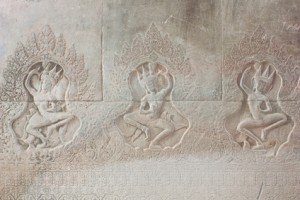Jonathan Morgan
 Bus stations in downtown Accra, Ghana, are almost always packed with people. A two-hour wait is pretty common, and on Fridays the crowd triples in size – and so does the wait. The only thing that makes this bearable is the good company in line and the constant stream of snack and drink hawkers passing by. “Yes, I will have another fried plantain!” I knew all this, but nevertheless found myself waiting for a bus late on a Friday afternoon back in 2004. By 8 p.m. the orderly line disintegrated whenever the bus pulled in – people climbed through windows and smashed through the front door. Because of the chaos, I missed the last bus.
Bus stations in downtown Accra, Ghana, are almost always packed with people. A two-hour wait is pretty common, and on Fridays the crowd triples in size – and so does the wait. The only thing that makes this bearable is the good company in line and the constant stream of snack and drink hawkers passing by. “Yes, I will have another fried plantain!” I knew all this, but nevertheless found myself waiting for a bus late on a Friday afternoon back in 2004. By 8 p.m. the orderly line disintegrated whenever the bus pulled in – people climbed through windows and smashed through the front door. Because of the chaos, I missed the last bus.
And as I stood there contemplating how many plantain snacks would make the 7-mile walk home bearable, a car pulled up and one of the guys I met in line asked if I wanted a ride home. (Minor miracles – aka the kindness of strangers – are one of the best parts of traveling.) As we pulled out into traffic I commented on how many people were out in the streets. Both the driver and my new friend nodded in consent and nonchalantly said “Yeah, of course, all the spirits come out on Fridays.”


